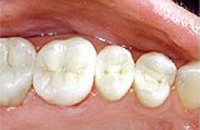My sister lives in California and has been raving because she says there’s a law there requiring insurance companies to cover sedation dentistry. She and I both had terrible experiences as children and don’t do well for any kind of dental procedure unless we have some kind of medication to get us through. This is big news because we’ve always had to pay out-of-pocket for it, and we don’t have the best teeth. I’ve looked and looked, but I don’t see anything that discusses this law- either as something in place or upcoming. Any news?
Thanks, Emilia
Dear Emilia,

- The current language of the laws stipulates that dental anesthesia only has mandatory coverage in a hospital setting. As you probably know, there are many people who genuinely require anesthesia, but don’t need to go to a hospital for treatment.
- The proposed legislation would force new insurance plans to cover it effective January 2019.
- The proposed law is being sponsored by the California Dental Association and California Society of Pediatric Dentistry. It is not yet approved. If passed, it could make a major difference for people like your sister who lives in California.
Sedation Dentistry and Insurance
Throughout the rest of the country, coverage for any form of anesthesia or OCS varies based on the insurance policy. While most insurance companies recognize that OCS makes it possible for many people to receive treatment, manage their oral health better, and possibly reduce expenses for insurance companies overall, most insurance companies are reluctant to add sedation dentistry as a necessary and valuable benefit.
It sounds as if you’ve personally made your oral health a priority and have found a way to budget for it, which is commendable. Patients who are still trying to find a way to manage dental anxiety and get necessary treatment may be able to find a plan that specifically covers OCS. It is worth noting that very few offer coverage and when they do, it can be costly.
As an alternative, it’s helpful to speak with your dentist about what your anxiety and finding affordable dental treatment. Most dentists will work with you to overcome the issues, perhaps by doing as much work as possible in a single appointment or doing the work in phases. Your dentist may have additional solutions.
This blog is sponsored by Plano sedation dentist, Dr. Miranda Lacy.
